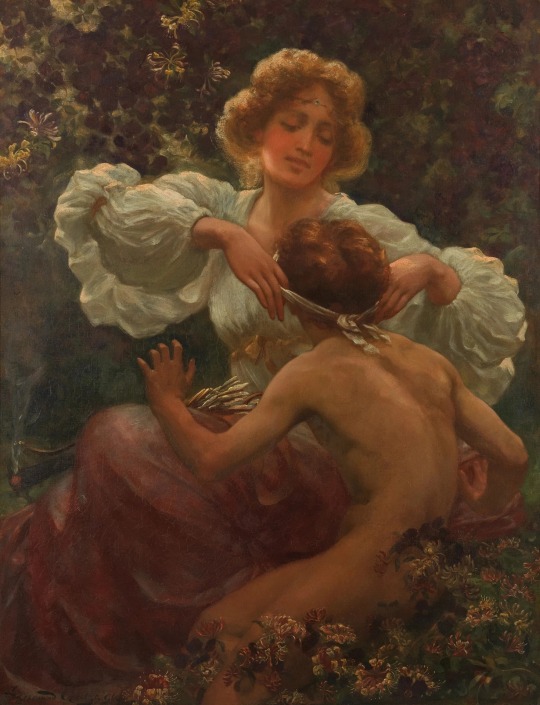@adambadeau✨Sam ✨I realized I needed a backup blog, here it is. I'm probably going to put my works of art and writing here. Don't expect anything soon!
Last active 60 minutes ago
Don't wanna be here? Send us removal request.
Text
Idk why people are constantly trying to put transmascs and transfems at odds because sometimes I just scroll through both of our tags and genuinely tear up at how beautiful it is to be part of this community and the hope we have. Seriously fuck people who keep trying to take that away from us
2K notes
·
View notes
Text
just finished reading act one scene two of hamlet and its so fucking funny to me cause like one moment hamlet's like "i wanna die, disappear from this world, have my flesh melt from my skin and evaporate like the morning dew, my mother is evil, she married my uncle and possibly had an affair" and then literally not even a minute later he's like "OMG HORATIO!!!"
39 notes
·
View notes
Text

Love is Blind, 1896 by Sigismund Christian Hubert Goetze (English, 1866--1939)
721 notes
·
View notes
Photo



Love’s Messenger (details) by Marie Spartali Stillman (1844 - 1927)
3K notes
·
View notes
Text


The Love Letter by Eugene de Blaas (Italian, 1843–1932)
1K notes
·
View notes
Text
there's nothing worse than grieving someone who's alive. if you were dead at least i could look back on my memories of you with fondness instead of horror
37 notes
·
View notes
Text
literally everybody who has ever been kind to me has made me kinder in return
134K notes
·
View notes
Text

Praying mantis By: Fredric L. Frye From: Captive Invertebrates 1992
151 notes
·
View notes
Text
feel like tumblr would appreciate this
(this is a bit old okay it’s not stunning 😬😬😬)
16 notes
·
View notes
Text
your wip just called. hey man your wip just called. its asking where you've been man.
16K notes
·
View notes
Text
do you guys think polonius fucked back in his day
45 notes
·
View notes
Text
My Hamlet character designs :)

29 notes
·
View notes
Text
Genuinely crashing out whenever I see people mischaracterize Hamlet and Horatio
6 notes
·
View notes



